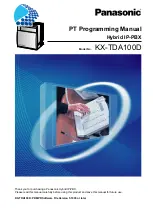
TrinityHighway.com
32
Revision A November 2021
Method 3 – Other Than 5’-0” [1.5 m] Cable (Factory or Field Applied Fittings)
When using a cable length other than 5’-0” [1.5 m], the amount of cable removed from the
damaged cable is to be adjusted based on the cable length removed.
1. To determine the amount of cable to be removed, after the threaded fittings are placed on
the piece of splice cable, take a measurement from end-of-fitting to end-of fitting. Take
this measurement and add 4’-6” [1.3 m] and this will be the amount of cable to be removed
from the damaged cable.
2. If the length of cable used is less than 5’-0” [1.5 m], remove less than 9’-8” [2.9 m] of cable
from the damaged cable.
3. If more than 5’-0” [1.5 m] of cable is used, remove more than 9’-8” [2.9 m] of cable from
the damaged cable.
Method 4 – Using Field Applied Fitting Connections Only (No Cables)
If the damaged cable, after cutting, is less than a total of 4’-6” [1.3 m], the connection can be
made with a left and right threaded field applied fittings and a turnbuckle.
1. Remove 4’-6” [1.3 m] of cable from the cable run.
2. Place a left-hand threaded fitting on one end of the cut cable and right-hand threaded
fitting on the other end of the cut cable.
3. Follow the procedures in the
“Field Applied Fittings with Turnbuckle”
Section.
After completing one (1) of the four (4) methods above, check the tension on the cable with the
tension meter and adjust the turnbuckles to bring the cable to the correct tension based on the
cable temperature and the values on Temperature/Tension Chart.
Cable Tension Inspection Program
Trinity Highway recommends the cable tension be checked at least once a year. The tension
value is established based on the cable temperature, which can be taken using an IR thermometer
for the cable temperature. If an infrared thermometer is not available, obtain the air temperature
from a reliable source in the immediate area and not influenced by other factors. See CASS
®
Temperature/Tension Chart for the tension values.










































